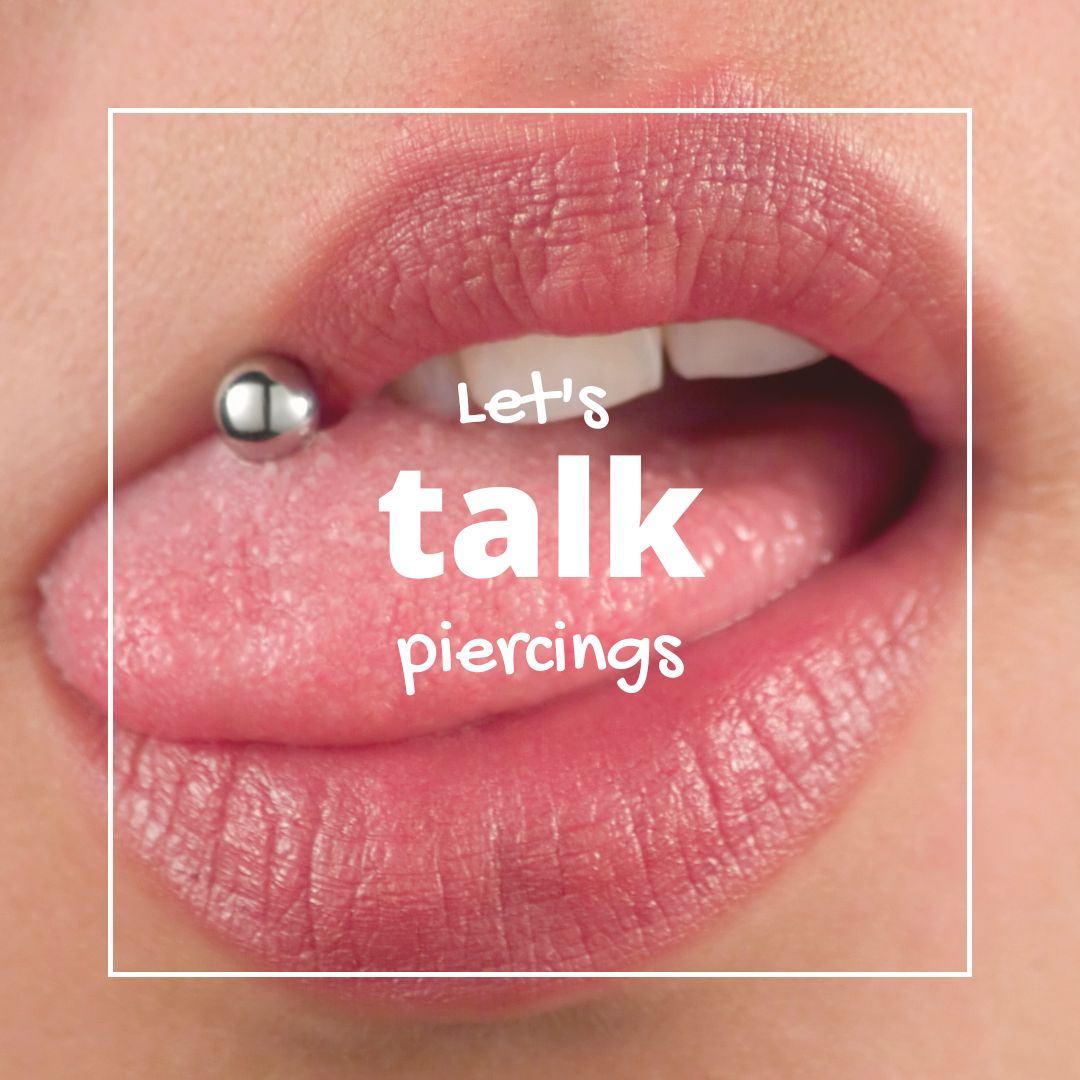Oral Piercings And Dental Health – What You Need To Know For Your Teeth and Gums?

Do you remember that kid with the lip ring you had a crush on in college or that blonde girl with the tongue ring? I wonder how his or her teeth are doing now years later. Don’t get me wrong; I am all about self expression and the alternative lifestyles or style and if oral piercings are your thing…I support you. Columbia Dental however does have a duty as Las Vegas / Henderson dental health professionals to let you know the facts about how oral piercings can affect your dental health.
In short we advise against oral piercings because they truly can be bad for your teeth, gums and tongue. They bring no dental health benefit to the table…they will not make your teeth or gums healthier at all.
Back in the old times of 1998, the only types of oral piercings that existed were traditional tongue and lip piercings but today in 2022 the options are unlimited it seems like from upper frenulum piercings to gum piercings to snake eyes to tongue web piercings and more…even people are getting their uvula pierced.

How do oral piercings affect oral health?
Piercings of the tongue and other oral sites are associated with increased risk of orodental trauma, gingival recession and potentially traumatic lacerations. Pierced individuals are also at increased risk of infection due to the vast number of bacterial species in the oral cavity.
Do dentists care about tongue piercings?
Sometimes people avoid going to the dentist because they’re afraid they’ll receive lectures about the dangers of tongue rings and piercings. Fortunately, most dentists have worked with plenty of patients who have rings and piercings and won’t make judgments about your jewelry.
Infection Risks From Oral Piercings
If you’ve ever had your nose or ears or anything else pierced, you understand the drastic risk of infection and the level of importance of keeping your new piercing clean. However, oral piercings have a much higher rate of infection because of their location in or near the mouth. Your mouth is home to millions of bacteria (some are good, others are extremely dangerous) that have the potential to enter the piercing site and cause deadly infections.
Oral Piercings Tooth & Gum Damage
One of the most common dental issues with oral piercings is tooth and gum damage. It is simple enough to damage your teeth and gums already, whether from chewing ice or brushing your teeth too damn hard. Now add a piece of metal jewelry into the equation and you have got a recipe for hell and disaster. Oral piercings can irritate the gum tissue, and cause enamel damage in the form of cracks, chips, scratches, and tooth sensitivity. Oral piercings can also damage your dental fillings and or crowns.
Oral Piercings and Nerve Damage
Following a sexy and seductive tongue piercing, it’s not rare to experience complete numbness due to nerve damage; this oral piercing nerve damage is usually temporary, but can sometimes be permanent lasting. The oral nerve damage can affect your sense of taste, as well as the movement and function of your mouth and tongue. Tongue piercings have also been known to damage the tongue’s blood vessels, which can cause serious blood loss for life.
Why do oral piercings cause gum recession?
Gum recession is because the metal of the piercings from your tongue, lips, cheeks etc can rub against gums when talking, eating, or moving the piercing out of habit, it can cause gum tissue to recede in a short amount of time. Gum recession sometimes requires gum surgery to correct if it becomes a drastic case. A study found that between 40 and 50% of people with a lip piercing and 44% of people with a tongue piercing experience gum recession. In comparison, amongst adults without lip piercings, just 7% experience gum recession.

